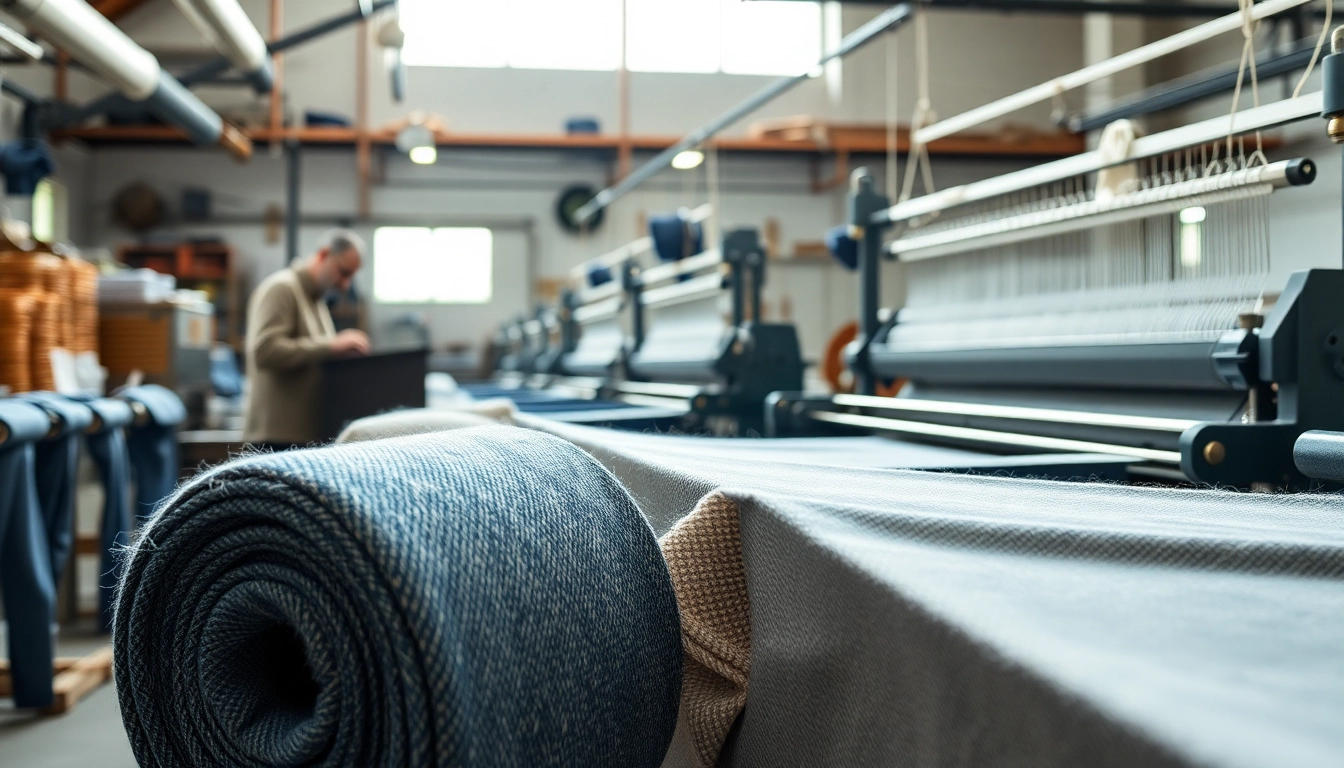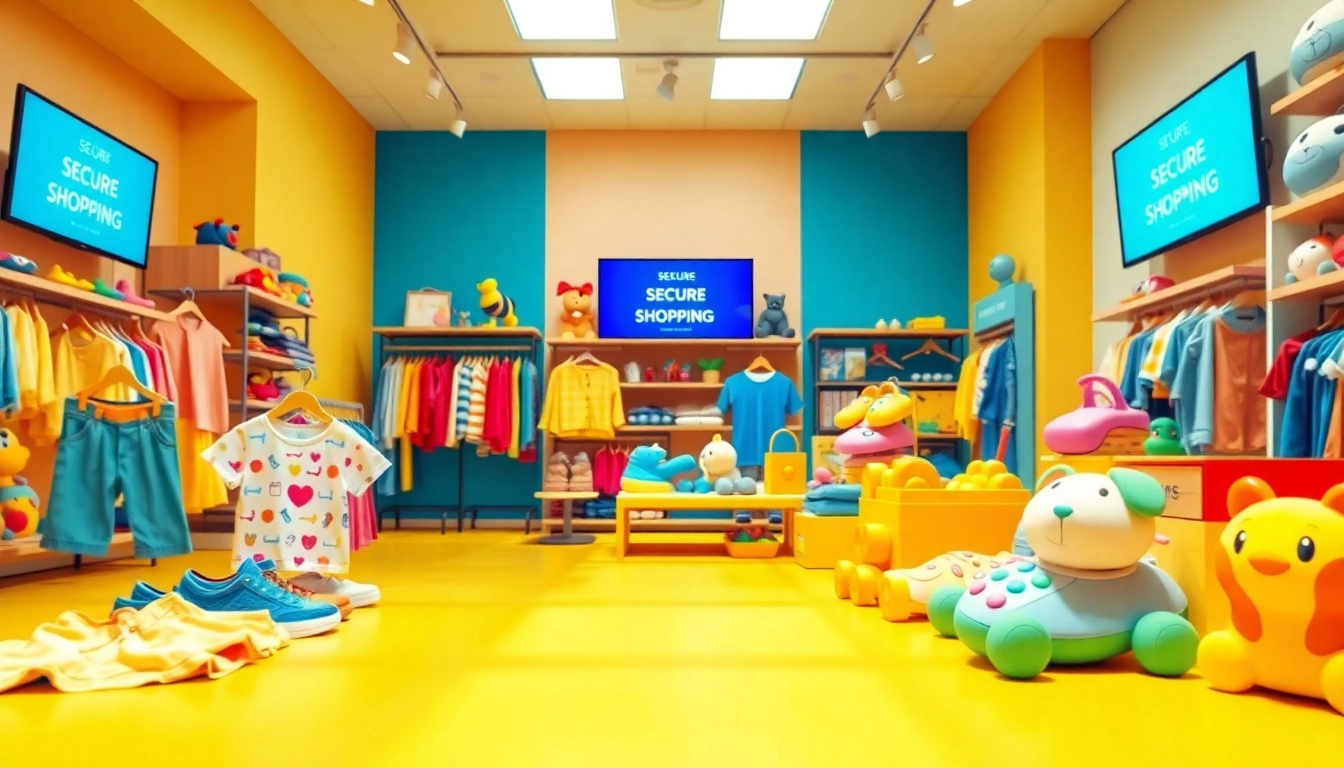Understanding Jeans Fabric Manufacturers
In the ever-evolving fashion industry, quality denim production is a cornerstone of success for many clothing brands. Understanding the role of jeans fabric manufacturers is crucial for both newcomers and seasoned professionals in the apparel market. The choices you make about fabric sourcing can have long-lasting effects on your products’ quality, brand reputation, and profitability. This comprehensive guide aims to provide insights into the characteristics of quality jean fabrics, the manufacturing processes involved, and how to select the right manufacturers for your needs.
What Defines Quality in Jean Fabrics?
Quality in jean fabrics is not merely a matter of aesthetics; it encompasses various factors including fiber content, weave structure, dyeing technique, and finish. High-quality denim is typically made from 100% cotton, but blends with materials such as elastane, polyester, and Tencel can also enhance the fabric’s properties.
- Fiber Content: The primary component of denim, cotton, offers durability and breathability. Blends can provide added stretch and softness.
- Weave Structure: The twill weave used in denim manufacturing provides the characteristic diagonal ribbing, contributing to the durability and texture of the fabric.
- Dyeing Techniques: Indigo dyeing is traditional in denim production, but modern techniques such as laser treatment and ozone washing can offer unique aesthetics while reducing environmental impact.
- Finishing Processes: Stone-washing or enzyme treatments can enhance the softness and appearance of jeans, but must be balanced against maintaining fabric integrity.
The Types of Fabrics Used in Denims
Diverse types of denim fabrics are used across different markets, each catering to specific consumer needs and fashion trends. Here are some common types:
- Raw Denim: Unwashed and untreated, raw denim has a stiff feel and ages uniquely, leading to personalized fading.
- Shrink-to-Fit Denim: Designed to shrink when washed, offering a tailored fit over time.
- Stretch Denim: Blended with elastane for added comfort and flexibility, essential for creating form-fitting designs.
- Selvedge Denim: Characterized by its tightly woven edge, often referred to as a ‘self-edge’, this fabric is revered for its quality and durability.
Industry Standards and Certifications to Consider
When evaluating jeans fabric manufacturers, it’s essential to consider industry certifications that speak to the quality and sustainability of the production practices. Some key certifications include:
- OEKO-TEX Standard 100: Ensures textiles are free from harmful substances.
- GOTS (Global Organic Textile Standard): Certifies organic textiles that are produced sustainably.
- ISO 14001: Focuses on effective environmental management systems.
The Manufacturing Process of Jeans Fabrics
From Raw Material to Finished Product
The journey of denim fabric begins with the selection of raw cotton. The production process entails multiple stages, including spinning, weaving, dyeing, and finishing. Each stage plays a critical role in determining the final quality of the fabric:
- Spinning: Raw cotton is spun into yarn, where the quality and twist of the fibers directly affect the durability of the fabric.
- Weaving: The spun yarn is woven using looms, typically in a twill pattern to create denim’s characteristic structure.
- Dyeing: Thewoven fabric is often dyed using indigo. The dying technique influences the depth of color and texture.
- Finishing: Processes such as washing, distressing, and other treatments enhance the desired characteristics of the fabric.
Innovative Techniques in Denim Production
Innovation has transformed denim production, with new techniques emerging to enhance quality while minimizing environmental impact. These include:
- Laser Technology: Used to create patterns or fades on denim without the use of water or harsh chemicals.
- Ozone Treatment: A process that allows for bleaching without extensive water use, significantly reducing environmental footprint.
- 3D Knitting: Provides unique fabric shapes and structures, improving the fit and comfort of jeans.
Sustainable Practices Among Jeans Fabric Manufacturers
Sustainability in denim production is increasingly important to consumers and manufacturers alike. Emphasizing responsible practices can enhance brand reputation and consumer loyalty. Some sustainable practices include:
- Water Management: Techniques aimed at reducing water use during production and implementing closed-loop systems for recycling water.
- Energy Efficiency: Utilizing renewable energy sources and optimizing machinery for lower energy consumption.
- Recycling Programs: Many manufacturers now have programs to recycle old jeans, turning waste into new fabric products.
Choosing the Right Jeans Fabric Manufacturer
Key Factors to Evaluate Potential Manufacturers
Selecting a jeans fabric manufacturer can be daunting given the variety of options available. Here are some critical factors to consider:
- Reputation: Research the manufacturer’s history, client testimonials, and track record in the industry.
- Certifications: Look for certifications that validate quality and compliance with industry standards.
- Production Capacity: Ensure the manufacturer can meet your order size, whether you are producing small batches or large quantities.
- Communication: Assess their responsiveness and willingness to accommodate your specific needs.
How to Assess Fabric Quality Before Purchase
Quality assessment before purchasing denim is crucial to avoid costly mistakes. Here are methods to evaluate fabric quality:
- Touch and Feel: Evaluate the fabric’s texture, weight, and overall feel against your quality standards.
- Fabric Tests: Conduct tests for durability, stretchability, and colorfastness, ensuring they meet industry standards.
- Sample Orders: Always order physical samples before making bulk decisions to confirm quality and performance.
Case Studies of Successful Partnerships
Examining successful manufacturer partnerships can provide valuable lessons. Look for stories that illustrate:
- Adaptability: How manufacturers have adapted to changing market trends and customer demands.
- Quality Commitment: Instances where a partnership prioritized quality even under pressure to cut costs.
- Sustainability Efforts: Collaborations that focused on ecological practices while maintaining product quality.
Market Trends in Jeans Fabric Manufacturing
Emerging Styles and Innovations in Denim
The denim market is in constant flux, influenced by trends in fashion and consumer preferences. Key trends to watch include:
- Sustainable Fashion: Increased demand for eco-friendly denim options, driving innovation in sustainable practices and materials.
- Smart Denim: Integration of technology into denim, such as moisture-wicking fabrics and embedded sensors.
- Customizable Jeans: Growing interest in customizable denim products, allowing consumers to design their fits and features.
Consumer Preferences Affecting Fabric Production
Consumer behavior greatly influences denim manufacturing. Understanding current preferences for style, comfort, and sustainability is crucial. Key preferences include:
- Comfort: Rising popularity of stretch denim blends to enhance fit and comfort.
- Authenticity: Consumers gravitate toward brands that promote traditional and artisanal production methods, seeking authenticity.
- Transparency: A growing desire for knowledge about the sourcing and manufacturing process, including labor practices.
The Impact of Global Trade on Manufacturing
Global trade dynamics play a significant role in the jeans fabric industry. Important aspects include:
- Trade Agreements: Policies affecting the import and export of raw materials and finished products.
- Labor Costs: Fluctuations in labor costs in different regions can influence production decisions and pricing.
- Supply Chain Resilience: Recent events have highlighted the need for flexibility and resilience in supply chains to mitigate risks.
Future of Jeans Fabric Manufacturers
Predictions for Industry Growth
The future of jeans fabric manufacturing looks promising, driven by innovation and consumer demand for quality. Expected growth areas include:
- Digital Transformation: Increased adoption of technology in production, from digital fabric printing to AI-driven fabric design.
- Sustainable Practices: Ongoing investment in sustainable sourcing and production methods as consumer accountability grows.
- Customization Opportunities: Growth in demand for customizable denim products, fueled by advancements in manufacturing technologies.
Challenges Facing Manufacturers Today
Despite the opportunities, jeans fabric manufacturers face several challenges including:
- Rising Raw Material Costs: Fluctuations in cotton prices and availability can significantly impact production costs.
- Sustainability Pressures: Increasing pressure from consumers and regulations to adopt eco-friendly practices can be daunting.
- Global Competition: Navigating a competitive landscape with manufacturers worldwide vying for the same market share.
Investing in Technology for Enhanced Production
Investing in modern technology is essential for denim manufacturers looking to stay competitive. Key areas for investment include:
- Automation: Streamlining operations through automation can enhance efficiency and reduce labor costs.
- Data Analytics: Leveraging data for predictive analytics can optimize inventory management and streamline production processes.
- Innovative Textile Technologies: Adoption of advanced materials and production techniques that enhance product performance and sustainability.



